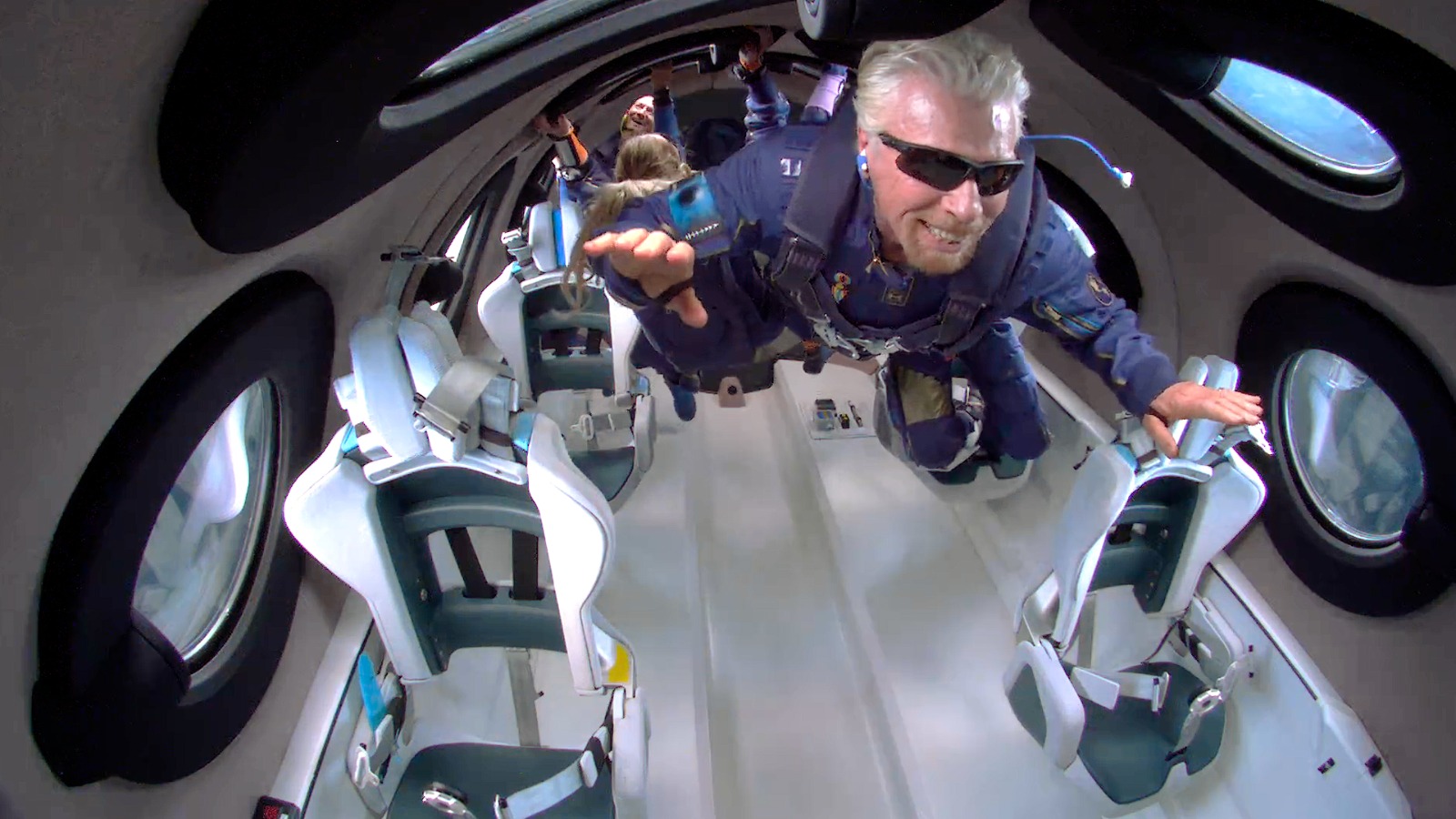Virgin Galactic pushes 1st planned commercial passenger flight to 2023
The company blames "supply chain and labor constraints" for the three-month delay.

Aspiring space tourists will need to wait a little longer before soaring into suborbital space with Virgin Galactic.
Virgin Galactic announced on Thursday (May 5) that commercial passenger service will be pushed back a quarter to the first three months of 2023, "due to supply chain and labor constraints."
Virgin Galactic's CEO, Michael Colglazier, noted the company is "containing the majority of these issues to minimize impact on schedules" but provided few details in a press release.
"We look forward to returning to space in the fourth quarter and launching commercial service in the first quarter of next year," Colgazier said.
A seat aboard the company's VSS Unity space plane currently costs $450,000. As of November 2021, Virgin Galactic had a reported 700 or so customers in its pool, and it's now reporting the wait list to be 800.
In photos: Virgin Galactic's 1st fully crewed spaceflight with Richard Branson
Virgin Galactic's first fully crewed spaceflight took place in July 2021, with founder Richard Branson on board. The company has briefly reopened ticket sales to customers twice since that flight, raising the price from a pre-Branson flight level of $250,000.
Breaking space news, the latest updates on rocket launches, skywatching events and more!
VSS Unity takes off under the wings of a carrier aircraft called VMS Eve. When the pair reach an altitude of about 50,000 feet (15,000 meters), Unity drops free and flies to suborbital space under its own rocket motor power.
Up to six passengers and two pilots can go to suborbital space at a time. VSS Unity has flown to the final frontier four times so far, all of them test flights. Unity is currently grounded due to maintenance and enhancement work on VMS Eve, which is expected to continue until the middle of this year, company representatives have said.
Thursday's announcement was part of Virgin Galactic's release of quarterly financial results. The company reported a net loss of $93 million in the first quarter of 2022, compared to a $130 million net loss in the first quarter of 2021. The company's cash reserves are at $1.22 billion as of March 31, according to the statement.
Competitor Blue Origin, which is run by Amazon's Jeff Bezos, is already flying paying customers to and from suborbital space with its autonomous New Shepard vehicle. The company has performed four crewed spaceflights to date, most recently on March 31. Blue Origin has not disclosed its ticket prices.
Follow Elizabeth Howell on Twitter @howellspace. Follow us on Twitter @Spacedotcom or Facebook.

Elizabeth Howell (she/her), Ph.D., was a staff writer in the spaceflight channel between 2022 and 2024 specializing in Canadian space news. She was contributing writer for Space.com for 10 years from 2012 to 2024. Elizabeth's reporting includes multiple exclusives with the White House, leading world coverage about a lost-and-found space tomato on the International Space Station, witnessing five human spaceflight launches on two continents, flying parabolic, working inside a spacesuit, and participating in a simulated Mars mission. Her latest book, "Why Am I Taller?" (ECW Press, 2022) is co-written with astronaut Dave Williams.
